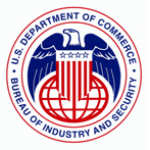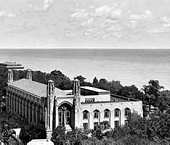 Last month I wrote a post on the consent decree entered into by BIS and EP MedSystems where, among other things, BIS appeared to have fly-specked the differences between a preliminary disclosure and a final disclosure and argued that the differences constituted misrepresentations. That led me to comment that one should think long and hard about the possibility that an export violation will be otherwise discovered by BIS before filing a voluntary disclosure.
Last month I wrote a post on the consent decree entered into by BIS and EP MedSystems where, among other things, BIS appeared to have fly-specked the differences between a preliminary disclosure and a final disclosure and argued that the differences constituted misrepresentations. That led me to comment that one should think long and hard about the possibility that an export violation will be otherwise discovered by BIS before filing a voluntary disclosure.
This posting apparently created something of a stir over at BIS because Wendy Wysong, Deputy Assistant Secretary for Export Enforcement at BIS, singled out my post in an article (subscription required) written by her and appearing in this month’s issue of The Export Practitioner. You would think that no lawyer in the export bar had ever expressed the opinion that BIS seemed to treat voluntary disclosures more harshly than necessary and certainly more harshly than DDTC and OFAC. Perhaps no one has stood up and said that at the BIS Update Conference, but I’ve certainly heard a number of other lawyers and export professionals express that sentiment.
But the good news is that the figures that Ms. Wysong has released do provide some basis for concluding that BIS does give some more favorable treatment to voluntary disclosures — well, sort of. Here is the data BIS released:
| Year |
VSDs Filed |
VSDs Resolved |
No Violation Found |
Warning Letter Issued |
Administrative Sanction |
Criminal Sanction |
| 2004 |
78 |
63 |
18 (29%) |
37 (59%) |
8 (12%) |
0 |
| 2005 |
148 |
98 |
44 (45%) |
52 (53%) |
2 (2%) |
0 |
| 2006 |
141 |
47 |
23 (49%) |
24 (51%) |
0 |
0 |
Well, these figures might be encouraging, but it’s hard to tell. The percentages only apply to “VSDs resolved” and not to the larger number of “VSDs filed.” Indeed, the discrepancy in the two figures is somewhat disturbing. Out of a total of 367 voluntary disclosures filed since 2004, only 208, or only 56% have been resolved. Ms. Wysong doesn’t give any reason for this discrepancy, which one would suppose is indicative of a backlog of voluntary disclosures at BIS. That certainly leaves open the possibility that the percentages shown in the table might change substantially once this backlog makes it through the system at BIS.
Another problem with these figures is that they are inconsistent with the second set of figures given by Ms. Wysong in her article. These figures are shown in the table below:
| Year |
Total Cases Resolved Administratively |
Administratively Resolved Cases Resulting from VSDs |
VSDs Penalized Greater than 50% of maximum fine
|
| 2004 |
63 |
12 |
1 |
| 2005 |
69 |
18 |
2 |
| 2006 |
95 |
28 |
3 |
Perhaps there is an explanation for this, but I don’t understand how Table 1 can say that there were 8, 2 and 0 cases with administrative sanctions in 2004, 2005, and 2006 and yet say in Table 2 that there 12, 18 and 28 voluntary disclosure cases that were administratively resolved in those same time periods.
Additionally, Ms. Wysong’s effort to make much of the small number of cases where less than 50% of the maximum penalty was imposed is slightly disingenuous. BIS’s tendency to multiply violations in charging letters is no secret. Each illegal export is seen as a violation of two or three overlapping rules. Indeed, in another article (subscription required) in the same issue of The Export Practitioner in which Ms. Wysong’s article appears, Mark Menefee, former director of BIS’s Office of Export Enforcement, boasts about this practice:
BIS has had a long-standing policy of charging multiple violations arising from a single transaction. I proudly did it, too, when I was director of the Office of Export Enforcement
Mr. Menefee justifies this practice on the ground that “multiple charges result in higher penalties, thereby increasing deterrence.”
That may well be the case outside of voluntary disclosures, but for Ms. Wysong to claim that voluntary disclosures lead to significant mitigations when they have no impact on BIS’s tendency to pile on violations in charging letters misses the point.
 The BIS website recently listed an anti-boycott settlement agreement involving freight forwarder and customs broker International Specialist, Inc., located in Boston, Massachusetts. The charging letter provided this significant bit of information about the alleged violation:
The BIS website recently listed an anti-boycott settlement agreement involving freight forwarder and customs broker International Specialist, Inc., located in Boston, Massachusetts. The charging letter provided this significant bit of information about the alleged violation:
 Posted by
Posted by  Category:
Category: 

 Last month I wrote a
Last month I wrote a  The UAE was apparently as surprised
The UAE was apparently as surprised 
 Last week the GAO released an unusually critical
Last week the GAO released an unusually critical 

